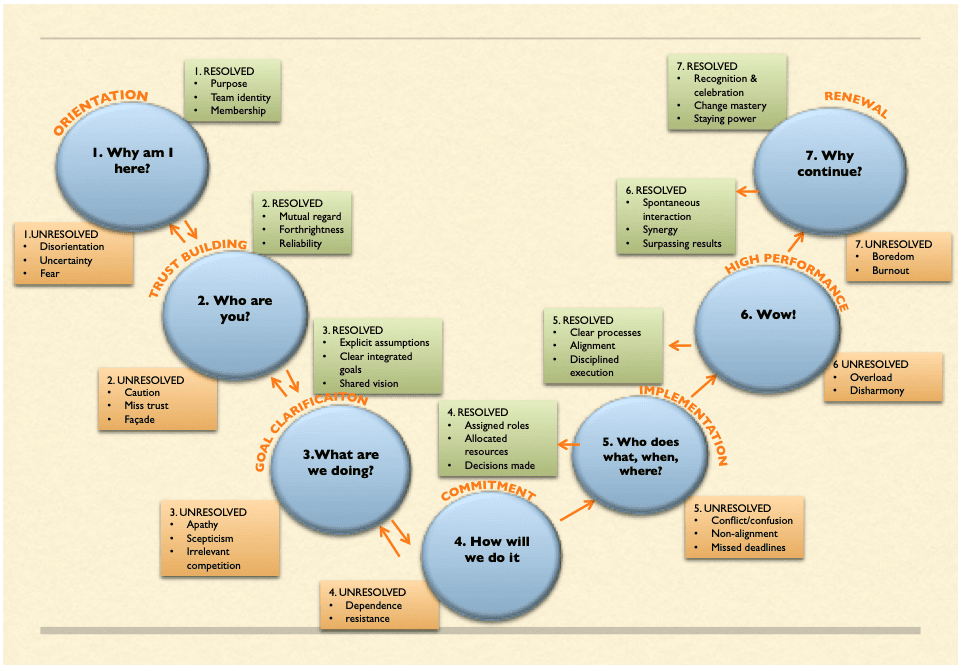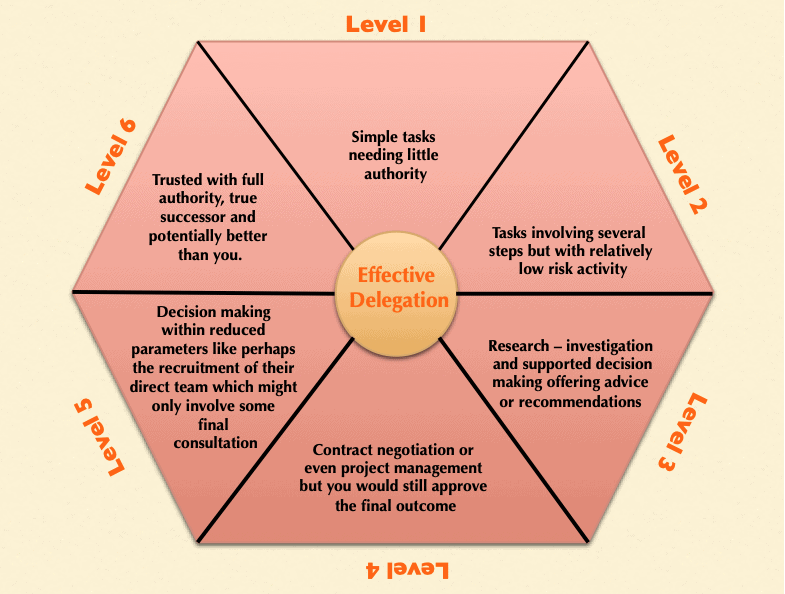In this blog we will explore the leadership challenges surrounding delegation, employee empowerment and how this integrates with the culture, principles and ethos of the organisation.
Over the years I have looked at various surveys that analyse employee engagement, a measure of how empowered your people are feeling whilst operating under the core purpose of the organisation and their direct relationship with management.
During the next “Think Tank” we will explore this further to provide some additional context ahead of our Network session with a quite exceptional speaker, Malcolm Smith.
Here is a story that I know he would appreciate. A few weeks ago I was in the local M & S: a great brand with a substantial HR department and large training budget. A bag of flour had burst all over the floor. The store was busy as they have all been during this Covid period and I watched customers walk around the spillage, which is perhaps to be expected. Then a member of staff who was shelf filling saw the mess, steered their trolley around and then chose to ignore it by continuing to fill the chiller cabinet. To my surprise a second member of staff who was directing a customer to the baking section also looked down on the spillage and made a quick exit to the right. By this time our shelf filler had completed his stocking up of the cabinet then strategically manoeuvred the trolley around the flour again and returned to the storeroom not to be seen again. Slightly frustrated I noticed the store manager and pointed out the mess from the flour who then proceeded to get the cleaning equipment and tidied up the spillage themselves. I am fairly certain that floor cleaning is not listed on the store manager’s job description. We all experience this as leaders where our people solely focus on their part of the job but seldom act proactively towards the work around the outside of their perceived boundaries. It’s the challenge of getting your people to think more about team unity and the company values than the individual personal tasks.
I remember the famous Forbes survey that explained how few of your employees were actually fully engaged in the organisations objectives and also that over 20% would be so disengaged that they would be acting like internal terrorists.
A great quote by Thomas Jefferson springs to mind when looking at this challenge because empowerment and effective delegation (the type that develops your direct reports and involves moving them out of their comfort zone). “If you want something you have never had you must be willing to do something you have never done”.
Another quite startling fact is that with all of management theory and training on this subject over the last 10 years if you compared answers to the question of “Do you feel empowered in the work place?” the needle has hardly moved!
Some argue that because “empowerment” is a buzzword for leadership that management feel they must deliver this essential discipline and only succeed in creating a sense of abandonment still leaving employees feeling totally unsupported.
Businesses have faced significant unexpected challenges during the past 5 months. As we know digital capability and the use of technology has advanced nearly a decade during this period but have you considered whether these changes in circumstances have made your people feel more or less empowered. Use the attached questionnaire to get some critical feedback.
Many companies have adapted well, rapidly introducing the essential tools and processes required for remote working. But the ability to build high performance team cultures in an environment of uncertainty and stress using only digital interfaces will take much longer and require enhanced techniques. We must accept that whilst people are starting to return to the office many organisations will still favour and encourage some home working as a safety precaution.
A recent article by the Red Cross, who frequently deal with some form of humanitarian crisis, suggest isolation, anxiety, doubt and insecurity are frequent symptoms.
These humanitarian organisations like the Red Cross provide us with three important points of leadership guidance:-
- Humility
They operate by establishing empathy and create a human connection when attempting to resolve challenging and stressful problems. This involves building trust and a background of relatedness that goes beyond the management employee relationship and builds important “social capital” with your team.
You should anticipate the stress points and reach out at the right moment to offer support.
Practice active listening and paraphrase what you have heard to test your understanding. Conduct your conversations with compassion and be flexible towards everyone’s working styles, home office conditions and individual often unique challenges.
Also encourage your team to hold digital stand up or walk and talk meetings during the day. Get them to connect on non-work related topics like they would in the office, hold coffee chats using digital channels. Lead these initiatives, share photos of people’s home office, create prizes for the most inventive use of space. Ensure that each individual is also allocated a friend who will check in on them when they might need it most.
- Make sure that their objectives have a clear and tangible sense of purpose.
Solving problems on your own can make you feel isolated and abandoned but when these objectives are connected to a greater collective purpose you don’t exhibit this loneliness.
Communicate how an individual’s efforts and achievements are contributing to the results of the company.
Remove barriers to progress and work on helping people to understand the interdependencies within each task or project. Create appropriate accountability within the context of the changed environment and always be clear about the required outcomes and the mission critical steps.
At the same time make sure that you encourage your team to establish “rituals” that will help them to also power down and achieve the essential work life balance which can be disrupted by the removal of the office and home partition.
- Communicate regularly and honestly
This is not just about what you say but how it resonates. Your message needs to bring all your people together just as in the Red Cross. They have to connect different individuals across multiple cultures and professional disciplines including people of faith often from all religions.
Great leaders know how to deliver the message and realise that people hang onto every word and that promises must be kept or your credibility is destroyed. This is a period when everybody feels like they are part of the circus high wire act and you are both the coach and their safety net. Its not about the obvious platitude of “our employees are important to the organisations success” its about showing them what the statement means and delivering against their needs. It’s also a time for listening so ask how your words have landed. Make sure you encourage feedback no matter how direct. This information is invaluable because it enables you to course correct and show your flexibility as a leader.
The Uspire Network promotes three important principles that can be used to create a more empowered culture. For the avoidance of doubt is a phrase often used by the legal profession, when looking at these tools you will understand that is a critical component of great leadership.
The first is the Drexler-Sibbet model below.
It is a step-by-step guide to understanding team development and establishing empowerment within your organisation.
It consists of seven distinct steps and shows the benefits of embedding each component well and the consequences of getting it wrong.

The second is the Hexagon of Delegation or DELHEXATION.
Leaders must look at the tasks and objectives they face and remove as quickly as possible to appropriate team members anything that hits your inbox at level 1, 2 and 3. You must accurately describe the outcomes you are looking for with levels 4 and 5. At level 6 you are brainstorming and debating outcomes and solutions with your senior executive before letting them deliver the results.

The third is to ensure that everyone understands your principles, values or the behaviours expected within the organisation.
A great example of this is probably Amazon who have enjoyed overwhelming success in the last 6 months and have enhanced their reputation with customers.
Jeff Bezos motto is to “make his people think like owners”, essentially he wants to empower them to ”take ownership”. You might not like all of the Amazon stories or way of doing business but if you have never seen his list before it will stimulate your thinking and help you to understand some of the essential parameters that create effective empowered organisations.
Amazons customer centric principles
Customer Obsession - Leaders start with the customer and work backwards. They work vigorously to earn and keep customer trust. Although leaders pay attention to competitors, they obsess over customers.
Ownership - Leaders are owners. They think long term and don’t sacrifice long-term value for short-term results. They act on behalf of the entire company, beyond just their own team. They never say “that’s not my job.”
Invent and Simplify - Leaders expect and require innovation and invention from their teams and always find ways to simplify. They are externally aware, look for new ideas from everywhere, and are not limited by “not invented here”. Because we do new things, we accept that we may be misunderstood for long periods of time.
Are Right, A Lot - Leaders are right a lot. They have strong judgement and good instincts. They seek diverse perspectives and work to disconfirm their beliefs.
Learn and Be Curious - Leaders are never done learning and always seek to improve themselves. They are curious about new possibilities and act to explore them.
Hire and Develop the Best - Leaders raise the performance bar with every hire and promotion. They recognise people with exceptional talent and willingly move them throughout the organisation. Leaders develop leaders and are serious about their role in coaching others. We work on behalf of our people to invent mechanisms for development like Career Choice.
Insist on the Highest Standards - Leaders have relentlessly high standards – many people may think these standards are unreasonably high. Leaders are continually raising the bar and driving their teams to deliver high quality products, services and processes. Leaders ensure that defects do not get sent down the line and that problems are fixed so they stay fixed.
Think Big - Thinking small is a self-fulfilling prophecy. Leaders create and communicate a bold direction that inspires results. They think differently and look around corners for ways to serve customers.
Bias for Action - Speed matters in business. Many decisions and actions are reversible and do not need extensive study. We value calculated risk taking.
Frugality - Accomplish more with less. Constraints breed resourcefulness, self-sufficiency and invention. There are no extra points for growing headcount, budget size or fixed expense.
Earn Trust - Leaders listen attentively, speak candidly, and treat others respectfully. They are vocally self-critical, even when doing so is awkward or embarrassing. Leaders do not believe their or their team’s body odour smells of perfume. They benchmark themselves and their teams against the best.
Dive Deep - Leaders operate at all levels, stay connected to the details, audit frequently, and are sceptical when metrics and anecdote differ. No task is beneath them.
Have Backbone; Disagree and Commit - Leaders are obligated to respectfully challenge decisions when they disagree, even when doing so is uncomfortable or exhausting. Leaders have conviction and are tenacious. They do not compromise for the sake of social cohesion. Once a decision is determined, they commit wholly.
Deliver Results - Leaders focus on the key inputs for their business and deliver them with the right quality and in a timely fashion. Despite setbacks, they rise to the occasion and never compromise.
Finally lets summarise the Uspire Network 12 point checklist of how to create an effective and truly empowered organisation.
- Define what success looks like and focus on the outcomes
- Communicate with humility and clarity
- Let go of fear – its ok to get a few small things wrong
- Be open and flexible to new ideas
- Develop people and heavily invest in helping them to grow
- Establish trust and be supportive
- Recognise and encourage progress not just results
- Build and properly resource an environment that people are comfortable with
- Establish principles, values and behaviours that are meaningful (Read Amazon list)
- Give people authority levels that they understand and be consistent
- Listen and receive feedback
- Celebrate success however small
Remember that the role of the finest commercial leaders when creating an empowered organisation is to remove doubt, build trust and establish clarity.
Colin Wright is the Chair of the Uspire Network. To find out more how The Network can help you become the best leader you can be contact Colin for a confidential chat.

